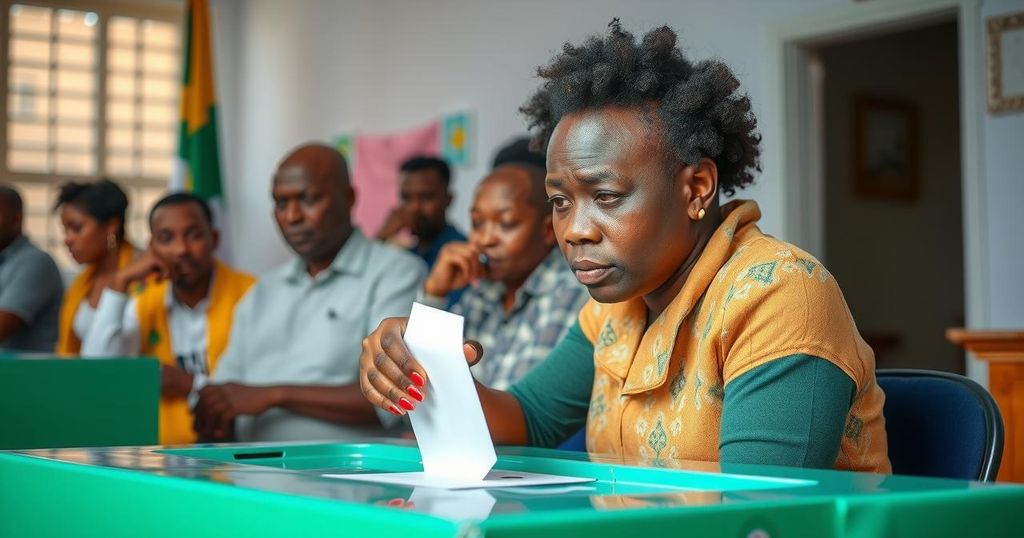Comoros Legislative Elections Amid Opposition Boycotts and Concerns Over Transparency

The Comoros held legislative elections with notable opposition snubbing the vote due to alleged transparency issues. President Azali Assoumani’s son is a candidate, amidst concerns about logistical failures at polling stations. With the CRC party likely to dominate, the elections reflect ongoing tensions within the country’s political landscape following previous disputed votes.
The Comoros conducted legislative elections amid significant opposition boycotts, citing concerns over transparency. President Azali Assoumani’s son, Nour El Fath Azali, is a key candidate, contesting for a constituency near the capital, Moroni. Voting commenced late due to logistical issues, with some polling stations lacking proper facilities, casting doubt on voter privacy. With the Convention for the Renewal of the Comoros (CRC) party likely to dominate, the government faces criticism over its authoritarian tendencies, particularly following a disputed presidential election in January 2024. Despite these issues, the elections proceed with approximately 340,000 registered voters participating, with a second round scheduled for February 16.
The Comoros, an island nation located in the Indian Ocean, faces political challenges, particularly regarding governance and electoral integrity. The current President Azali Assoumani has been accused of authoritarianism since taking power following a military coup in 1999. His administration’s strategy has raised concerns among opposition groups, especially after the controversial re-election in January 2024, which was followed by civil unrest. The current legislative elections are seen as pivotal, particularly in light of past boycotts and allegations of electoral fraud.
The recent polling in the Comoros highlights the tumultuous political climate and the opposition’s skepticism towards the electoral process. With the ruling CRC party expected to maintain power, the implications for democracy in the Comoros are significant. Observations from the elections shed light on logistical issues and the potential lack of voter privacy, contributing to the overall concerns regarding the integrity of the electoral system and governance in the country.
Original Source: www.barrons.com








